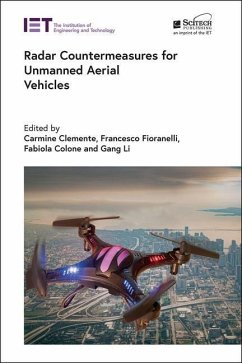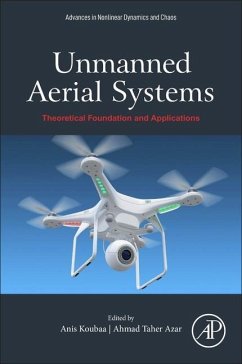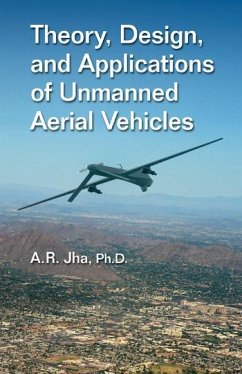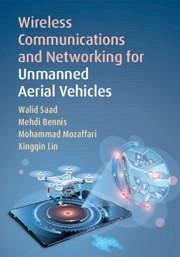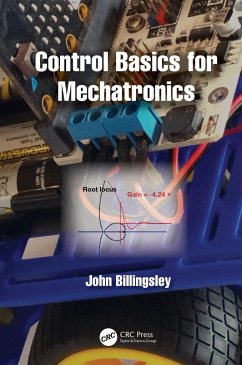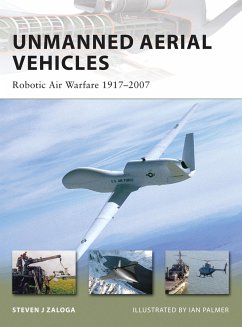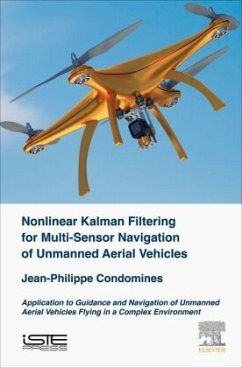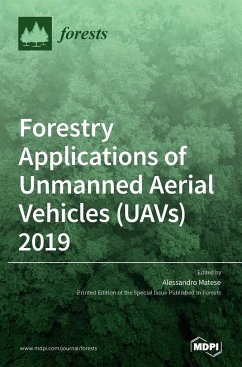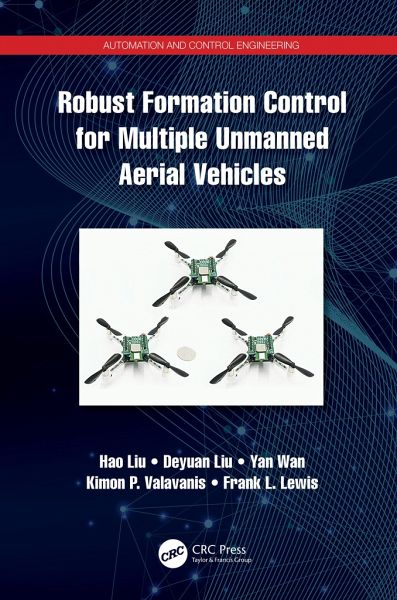
Robust Formation Control for Multiple Unmanned Aerial Vehicles
Versandkostenfrei!
Versandfertig in 6-10 Tagen
88,99 €
inkl. MwSt.
Weitere Ausgaben:

PAYBACK Punkte
44 °P sammeln!
This book is based on the authors' recent research results on formation control problems, including time-varying formation, communication delays, fault-tolerant formation for multiple UAV systems with highly nonlinear and coupled, parameter uncertainties, and external disturbances.Differentiating from existing works, this book presents a robust optimal formation approach to designing distributed cooperative control laws for a group of UAVs, based on the linear quadratic regulator control method and the robust compensation theory. The proposed control method is composed of two parts: the nomina...
This book is based on the authors' recent research results on formation control problems, including time-varying formation, communication delays, fault-tolerant formation for multiple UAV systems with highly nonlinear and coupled, parameter uncertainties, and external disturbances.
Differentiating from existing works, this book presents a robust optimal formation approach to designing distributed cooperative control laws for a group of UAVs, based on the linear quadratic regulator control method and the robust compensation theory. The proposed control method is composed of two parts: the nominal part to achieve desired tracking performance and the robust compensation part to restrain the influence of highly nonlinear and strongly coupled parameter uncertainties, and external disturbances on the global closed-loop control system. Furthermore, this book gives proof of their robust properties. The influence of communication delays and actuator fault tolerance can be restrained by the proposed robust formation control protocol, and the formation tracking errors can converge into a neighborhood of the origin bounded by a given constant in a finite time. Moreover, the book provides details about the practical application of the proposed method to design formation control systems for multiple quadrotors and tail-sitters. Additional features include a robust control method that is proposed to address the formation control problem for UAVs and theoretical and experimental research for the cooperative flight of the quadrotor UAV group and the tail-sitter UAV group.
Robust Formation Control for Multiple Unmanned Aerial Vehicles is suitable for graduate students, researchers, and engineers in the system and control community, especially those engaged in the areas of robust control, UAV swarming, and multi-agent systems.
Differentiating from existing works, this book presents a robust optimal formation approach to designing distributed cooperative control laws for a group of UAVs, based on the linear quadratic regulator control method and the robust compensation theory. The proposed control method is composed of two parts: the nominal part to achieve desired tracking performance and the robust compensation part to restrain the influence of highly nonlinear and strongly coupled parameter uncertainties, and external disturbances on the global closed-loop control system. Furthermore, this book gives proof of their robust properties. The influence of communication delays and actuator fault tolerance can be restrained by the proposed robust formation control protocol, and the formation tracking errors can converge into a neighborhood of the origin bounded by a given constant in a finite time. Moreover, the book provides details about the practical application of the proposed method to design formation control systems for multiple quadrotors and tail-sitters. Additional features include a robust control method that is proposed to address the formation control problem for UAVs and theoretical and experimental research for the cooperative flight of the quadrotor UAV group and the tail-sitter UAV group.
Robust Formation Control for Multiple Unmanned Aerial Vehicles is suitable for graduate students, researchers, and engineers in the system and control community, especially those engaged in the areas of robust control, UAV swarming, and multi-agent systems.




